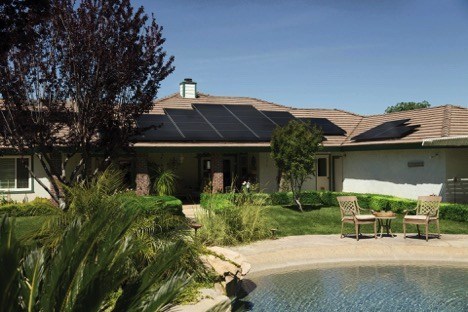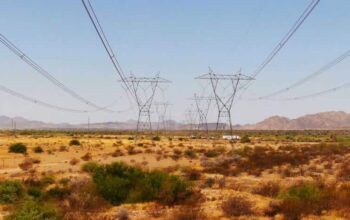Disclosure: As an Amazon Associate I earn from qualifying purchases. This page may contain affiliate links, which means I may receive a commission if you click a link and purchase something that I have recommended. There is no additional cost to you whatsoever.
May 24, 2020
Given the tons of benefits it affords you — solar energy is the future.
So you will be making the right decision if you choose to power your home with solar energy. However, powering your home with solar energy will require some amount of planning if everything is to go just the way you want it.
Thankfully, we know a thing or two about the nuts and bolts of getting solar energy to your abode.
Determine Your Home’s Energy Efficiency
This is the first step to take when you are looking to install solar energy because it is a key part of your plan. The aim is to determine if you need to upgrade the energy efficiency of your home. Take time to figure your total electric usage. This will help you decide if you need a home solar system. Here’s how you can determine the energy efficiency of your home:
- Carry out a home energy audit which should help you see how you expend energy so you can decide if you are losing electricity unnecessarily.
- Take a look at your appliances. You might need to eliminate the use of some or just replace others with high-efficiency models. You also want to ensure that you are using energy-efficient lighting.
- Do you use a cooling and heating system? If weatherizing your home feasible? If not, what are the options you have? HVAC systems consume a lot of energy in case you didn’t know.
Solar Potential
The next step in planning a home solar system is to examine your home’s solar potential. Specifically, how power will be generated from the sites available. Luckily, there are lots of tools that can enable you to gauge the solar potential of your home. You must do this because not all homes are suitable for solar, and your home might be one of those homes.
Another option is to engage the services of a professional solar installer to help you with this. Gauging your home’s solar potential will require you to ascertain the following:
Your roof: Does it need to be replaced? If yes, then how soon do you need to do this? Solar panels need sturdy roofs. You will want to consider the age of your roof and whether or not it will need to be replaced. If you think that you will need to replace your roof in the next couple of years, you will need to go ahead and do that before you attach rooftop solar.
Shade trees: Are there any around your home? Shade trees will reduce the amount of light that solar panels receive. So it’s important to take a look at where you plan to put your solar system.
Your Local Home Owners Association: Will they permit a solar system in your home? What are the stipulations guiding solar panel systems in your neighborhood?
What Are the Options for Using Solar
Nowadays, there are several options that will allow you to enjoy solar energy in your home — even if you do not want to rent or purchase a rooftop system. Here are the available options:
- Shared solar: In this scenario, people can share solar energy using virtual net metering.
- Solar leases: Here, you can lease a solar system if you can’t afford one.
- Solarize program: This program allows you to get a discount system or participate in one.
- Switch energy suppliers to get green energy (if you’re in a deregulated state).
- Power purchase agreement: This involves a third party agreement wherein you get solar energy from a party that places the equipment on your home.
Do Your Research
The next step is to find out where you can get the best service when it’s time to install a home solar system. It’s vital to do your research about the experts in solar-generated power near you. There are no cutting corners here. Only the best will do when you are looking to invest in solar power. So do your research. Always ask for proof of certification from the North American Board of Certified Energy Practitioners.
Bear the following questions in mind when you are at this stage:
- How much does the outfit know about local building permits and interconnections?
- Can you get references from other people?
- What is their warranty like?
It also makes sense to ensure that the company does not have any liens or active judgments. Check the Better Business Bureau or your state’s electricity board for this information.
Financing
There are lots of solar financing options and incentives (like tax credits, for example) available to those looking to get a home solar system. Try to understand as much as possible about the incentives that are available to you.
You can get as much information as you want about available incentives from the Database of State Incentives for Renewables & Efficiency.
Making Your Decision
This is where you decide if you are to get a professional service or just go the DIY route. The latter option is certainly a possibility. All you need is to do some more research on the kind of solar PV tools you need, the size of panels to install, and how to install them.
Whatever your decision, be sure to stay on the right side of the local laws.
Takeaway
By following the steps described above on planning a home solar system, you’ll be able to get your home powered with solar energy in no time.

Thad Warren covers renewable energy technology and trends in the utility industry for EnergyBot. His work has been published in MarketWatch, Seeking Alpha, and the Chicago Daily Harold.








